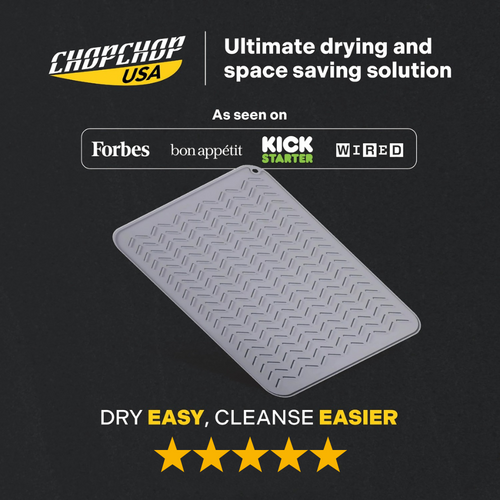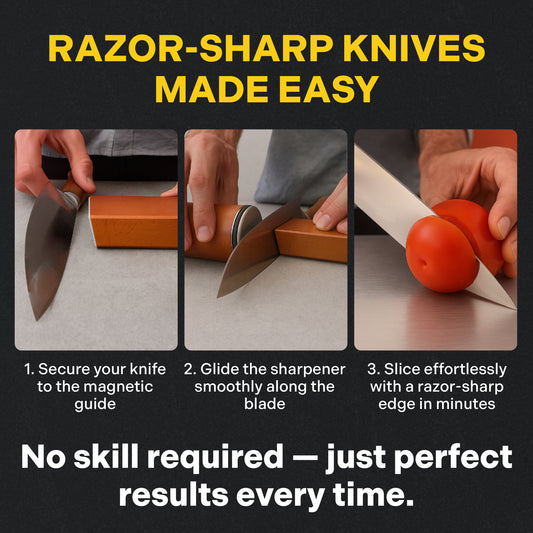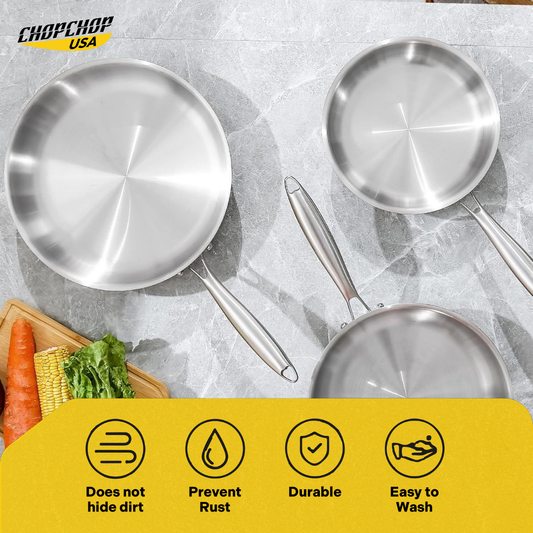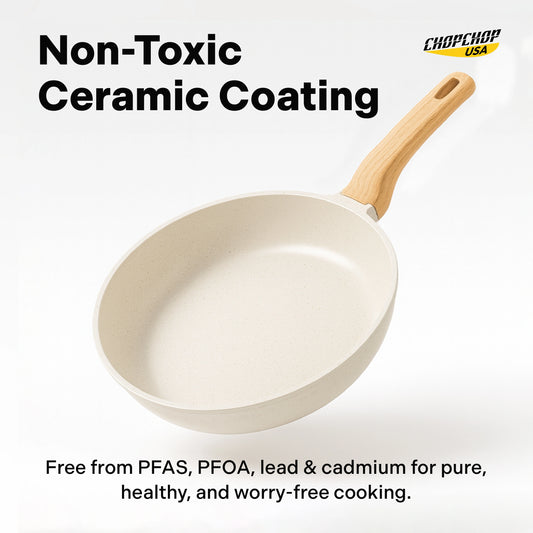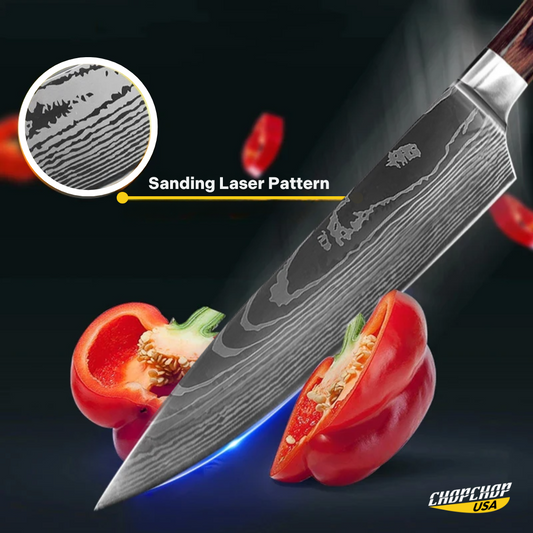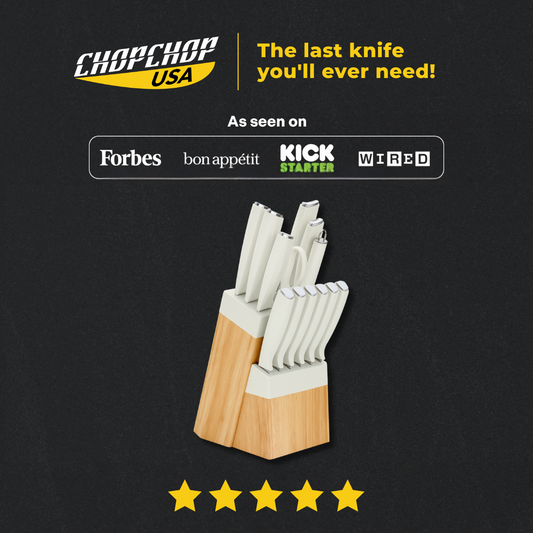What are the best oils for maintaining Japanese knives, and why do they matter so much for your blades? The answer is simple: the right oil protects your knife from rust, preserves sharpness, and extends its lifespan—making it an essential step in proper knife care.
In this guide, ChopChop USA will explore the best oils for maintaining Japanese knives, explain why regular oiling is essential, provide step-by-step application instructions, and highlight the most effective oils to ensure long-lasting blade protection, sharpness, and optimal performance in any kitchen.
Why Oiling Your Japanese Knives Matters

Regular oiling protects delicate steel from humidity, oxidation, food acids, and everyday wear, ensuring predictable performance and long-lasting edge quality.
Japanese knives are precision tools crafted from steel types that often react to moisture and environmental conditions. Carbon steel, in particular, forms rust quickly when left unprotected, making a protective oil layer essential. Even stainless-steel blades benefit from occasional oiling since “stainless” doesn’t mean “rustproof.”
Understanding the best oils for maintaining Japanese knives helps you build a protection routine that keeps corrosion away, stops discoloration, and preserves the clean slicing experience Japanese blades are known for.
Proper oiling:
- Blocks oxygen from reaching the blade
- Prevents rust in humid, coastal, or tropical climates
- Keeps the cutting surface clean and smooth
- Extends the lifespan of both carbon and stainless knives
- Supports consistent performance in daily prep
No matter how frequently you cook, oiling ensures your knife stays reliable, safe, and ready for precision work.
Top Oils for Maintaining Japanese Knives

Choosing the best oils for maintaining Japanese knives ensures your blade is shielded from rust while preserving its natural patina and sharpness.
The oils below are trusted by chefs, sharpeners, and traditional craftsmen. Each provides a different balance of protection, scent, feel, and long-term performance.
Camellia Oil (Tsubaki Oil)

Camellia oil is highly valued for its clean, non-sticky protection, making it a favorite among Japanese swordsmiths and modern chefs. Its centuries-long history on swords, artisan tools, and kitchen knives demonstrates its reliability for maintaining sharp, rust-free blades. Lightweight and non-greasy, camellia oil provides an even coating that won’t interfere with food aroma or flavor, allowing chefs to store their knives safely without worry.
The oil’s stability in all climates and long-lasting rust protection make it ideal for both carbon steel and stainless-steel knives. Its traditional roots, combined with practical modern performance, ensure that camellia oil remains one of the most trusted solutions for maintaining Japanese knives.
Benefits:
- Food-safe and non-toxic
- Long-lasting rust protection
- Non-greasy, smooth finish
- Stable in all climates
- Ideal for carbon steel and stainless steel
Food-Grade Mineral Oil

Food-grade mineral oil is ideal for beginners or home cooks seeking simple, safe, and reliable rust protection. It is widely considered one of the best oils for maintaining Japanese knives due to its accessibility, affordability, and excellent safety profile. Mineral oil does not go rancid, reacts minimally with ingredients, and leaves a clean, protective layer.
Because it penetrates deeply into the knife’s surface without altering appearance or flavor, mineral oil ensures consistent care for long-term use. Its ease of application and non-toxic nature make it perfect for routine maintenance, storage, and use in both professional and home kitchens.
Benefits:
- Odorless and colorless
- Affordable and widely available
- Non-reactive and stable
- Doesn’t go rancid
- Great for routine maintenance and storage
Ballistol Oil

Ballistol is a versatile oil suitable for protecting both metal blades and wooden handles. Although not traditional, it is increasingly recognized among the best oils for maintaining Japanese knives because it provides strong corrosion resistance and antibacterial protection, making it a multi-purpose solution for chefs.
Its unique formula ensures deep penetration into steel while also conditioning wooden handles, preventing cracking or dryness. While its distinctive scent may not appeal to everyone, its effectiveness in preventing rust, reducing microbial growth, and maintaining overall blade health makes Ballistol a dependable choice for multi-use knife care.
Benefits:
- Strong rust barrier
- Multi-purpose (metal and wood)
- Antimicrobial properties
- Easy to apply
- Durable long-term protection
Beeswax + Oil Blends

Beeswax blended with light oils offers long-lasting protection by creating a thicker, water-repellent barrier than oil alone. These blends are considered among the best oils for maintaining Japanese knives, especially for collectors, professional sharpeners, or chefs in humid environments who store knives for extended periods.
The blend penetrates steel surfaces while forming a durable outer layer that prevents moisture penetration and oxidation. In addition to rust protection, it enhances the blade’s surface sheen, ensuring knives remain visually appealing and fully functional in both tropical and high-humidity regions.
Benefits:
- Thick, water-repellent seal
- Excellent for high humidity
- Enhances surface sheen
- Ideal for long-term storage
- Provides extra durability
Refined Walnut Oil

Refined walnut oil penetrates deeply into knife surfaces and handles, hardening slightly over time to create a natural protective layer while enriching the blade’s patina. This oil is frequently recommended among the best oils for maintaining Japanese knives because it balances protection and aesthetic enhancement.
It is food-safe, eco-friendly, and suitable for carbon steel and stainless steel, providing a smooth, slightly hardening finish. Note that it is not suitable for kitchens with nut allergies. With regular application, refined walnut oil protects against rust, preserves sharpness, and keeps knives looking polished and well-maintained.
Benefits:
- Food-safe and non-toxic
- Eco-friendly
- Enhances natural coloration
- Light hardening finish
- Deep penetration for lasting protection
How to Apply Oil Correctly

Correct application ensures your blade receives even coverage, strong rust resistance, and long-lasting protection from moisture and air exposure.
Using the best oils for maintaining Japanese knives is only effective when paired with proper technique. A clean, dry surface helps oil perform at its best.
Step-by-Step Oiling Guide
- Wash your blade with mild soap and warm water.
- Dry it thoroughly—any moisture leads to rust.
- Place 1–2 drops of oil on a soft cloth.
- Wipe evenly on both sides of the blade.
- Remove excess to avoid grease buildup.
- Store in a saya, sheath, or dry location.
Pro Tip: Oil after cutting acidic, wet, or high-moisture foods.
Mistakes to Avoid When Oiling Japanese Knives

Avoiding common maintenance mistakes ensures your blade stays protected and prevents issues caused by over-oiling, food oils, or poor storage habits.
Even if you’re using the best oils for maintaining Japanese knives, incorrect habits can reduce effectiveness.
Avoid:
- Using olive, coconut, or vegetable oils
- Applying too much oil
- Oiling a damp blade
- Skipping oiling in humid seasons
- Mixing too many oil types
Consistency and simplicity create the most effective care routine.
How Often Should You Oil Your Japanese Knife?

Oiling frequency depends on your knife’s steel type, your environment, and how often you cook, ensuring year-round protection in any climate.
Here’s a simple guide:
- Daily users: Every 1–2 days
- Weekly users: Once per week
- Display or storage knives: Every 3–4 weeks
- Humid climates: More frequent care recommended
Remember that the best oils for maintaining Japanese knives only work when applied regularly.
Elevate Your Cooking With ChopChop USA Kiritsuke Knife

The ChopChop USA Kiritsuke Knife blends traditional Japanese design with modern engineering to deliver exceptional control, sharpness, and stability in every cut. Crafted for demanding kitchens, it empowers chefs to handle complex tasks with confidence, from delicate slicing to heavy prep work, without sacrificing precision or balance.
Built for culinary professionals and passionate home cooks, this knife emphasizes long-lasting sharpness, elegant handling, and unmatched efficiency. Its high-carbon stainless steel blade, laser-tested edge, and ergonomic grip come together to create a tool that performs flawlessly, even during extended cooking sessions requiring consistent accuracy.
With dimensions of 12.4" × 7.9" × 4.5", this Kiritsuke offers optimal reach and maneuverability, making it ideal for vegetables, fish, and meat. When paired with the best oils for maintaining Japanese knives, it stays rust-free, sharp, and dependable, ensuring years of professional-grade performance.
Conclusion
Choosing proper oils, maintaining a consistent care routine, and applying oil correctly ensure your Japanese knives stay sharp, clean, and protected for years.
Using the best oils for maintaining Japanese knives—whether camellia oil, mineral oil, Ballistol, walnut oil, or beeswax blends—keeps your ChopChop USA Kiritsuke knife safe from rust and corrosion while preserving cutting quality. Routine care ensures your knife remains a reliable, high-performance kitchen tool for countless meals.
FAQs
How often should I apply the oils to maintain Japanese knives?
Apply oil weekly for regular use, or every few days in humid environments, to ensure consistent rust protection and long-term blade performance.
Can I use cooking oils?
Avoid cooking oils because they eventually turn rancid, creating sticky buildup that harms the blade surface and reduces overall knife performance and safety.
Which oils are safest for food contact?
Mineral oil and camellia oil are the safest food-contact choices, offering clean, reliable protection without odor, flavor changes, or risk of spoilage over time.
Do oils improve sharpness?
Oils don’t sharpen the blade, but they prevent corrosion and oxidation, helping your knife maintain its edge for a longer period.
What are the best oils for maintaining Japanese knives?
The best oils for maintaining Japanese knives include camellia oil, food-grade mineral oil, Ballistol, beeswax blends, and refined walnut oil for rust protection and long-lasting care.


